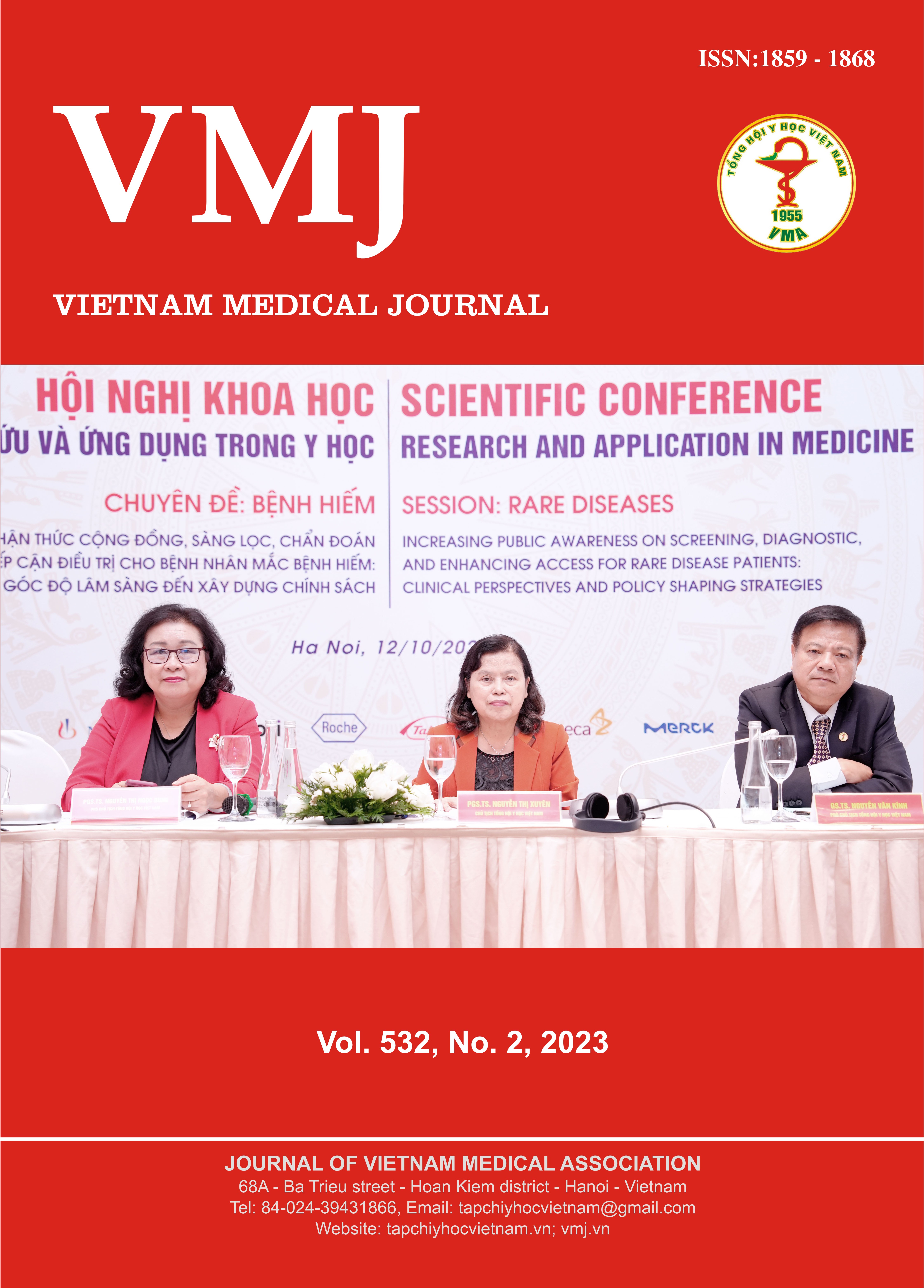COVID-19 VACCINATION EXPERIENCES OF PEOPLE RECEIVING COVID-19 VACCINES AT HANOI MEDICAL UNIVERSITY AND RELATED FACTORS
Nội dung chính của bài viết
Tóm tắt
Objective: The study described the post-injection symptoms, experience after being vaccinated against COVID-19 and some related factors of people vaccinated at Hanoi Medical university. Method: We conducted a mixed-method cross sectional study, combining qualitative and quantitative approaches on adults who received the second dose of vaccine at Hanoi Medical University from August 2021 to June 2022.With the quantitative part collected by online questionnaires and analyzed using descriptive statistics by the Stata 15.0 software. For the qualitative part, we used the content analysis strategy of in-depth interviews. Results: 696 people participated in the study and the majority of those experienced post-vaccination symptoms (88.5%), followed by tiredness, fever and the increased pain at the injection site. Most respondents felt satisfied with the vaccination process (98.4%). The in-depth interviews showed 5 feelings during the injection, including anxiety, suspense, fear, non-anxiety, and satisfaction. Negative experiences were mainly related to post-injection side effects and most common at the first dose of vaccine. Common related factors included: individual factors; family and friends; vaccines; injection environment; reference sources and other social factors. The vaccine factor was reported to have the most impact on vaccination experience. Recommendations: Enhance professionalism according to the vaccination organization process as well as improve the efficiency of pre-, during and post-injection consultations of medical vaccination facilities in the locality. At the same time, regularly update and ensure the quality of information sources, especially vaccination information on the electronic system for easy access by injectors and agencies and organizations.
Chi tiết bài viết
Từ khóa
COVID-19, Immunization, Vaccination needs, Cross-sectional study, Immunization experience.
Tài liệu tham khảo
2. CDC. Vaccine Adverse Event Reporting System (VAERS): September 8, 2022; 2022 [cited 2023 January 16]. Available from: https://www.cdc.gov/vaccinesafety/ensuringsafety/monitoring/vaers/index.html.
3. Duong M. Blogging three ways in Vietnam's political blogosphere. Contemporary Southeast Asia: A journal of International and strategic affairs. 2017;39(2):373-92.
4. Duong MC, Nguyen HT, Duong M. Evaluating COVID-19 vaccine hesitancy: A qualitative study from Vietnam. Diabetes Metab Syndr. 2022;16(1):102363.
5. Edouard Mathieu HR, Lucas Rodés-Guirao, Cameron Appel, Charlie Giattino, Joe Hasell, Bobbie Macdonald, Saloni Dattani, Diana Beltekian, Esteban Ortiz-Ospina and Max Roser. Coronavirus Pandemic (COVID-19) Published online at OurWorldInData.org2020 [cited 2023 11/05]. Available from: https://ourworldindata.org/covid-vaccinations.
6. Qin C, Wang R, Tao L, Liu M, Liu J. Acceptance of a Third Dose of COVID-19 Vaccine and Associated Factors in China Based on Health Belief Model: A National Cross-Sectional Study. Vaccines (Basel). 2022;10(1).
7. Saied SM, Saied EM, Kabbash IA, Abdo SAE. Vaccine hesitancy: Beliefs and barriers associated with COVID-19 vaccination among Egyptian medical students. J Med Virol. 2021;93(7):4280-91


